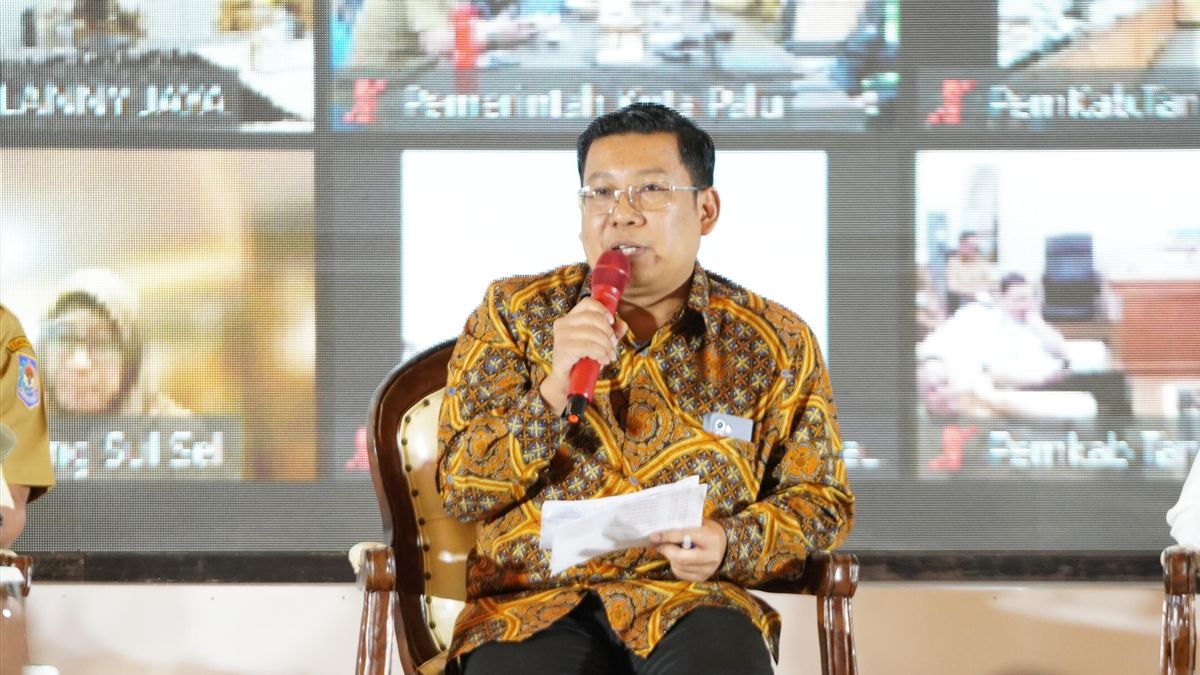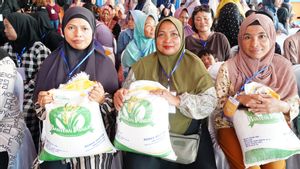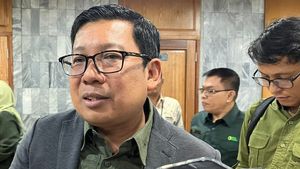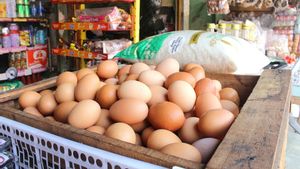JAKARTA - Head of the National Food Agency (Bapanas) Arief Prasetyo Adi emphasized that Indonesia's food security must be sourced from domestic production. In order to make this happen, the government continues to support farmers to intensify their productivity, especially food crops.
This was conveyed by Arief at the 'Torn Planting Movement' with the Ministry of Agriculture (Kementan) and the Provincial Government of the Special Region of Yogyakarta (DIY) in Semin, Gunungkidul, DIY.
"So Indonesia's food security should not be based on imports alone. The key lies with all of you, all farmers," he said in an official statement, Tuesday, July 2.
Moreover, continued Arief, recently the rupiah exchange rate against the United States (US) dollar weakened and penetrated the level of Rp. 16,400. Therefore, he considered this an opportunity to boost domestic food production.
If it is related to today's foreign exchange conditions, what will be the impact on national food? I want to say again that today is the time for us to produce domestically, so that we can meet domestic needs and this must be supported by all parties. This is our current opportunity for domestic production, because the price must be good," he added.
Therefore, Arief asked the Ministry of Agriculture to ensure support for farmers, such as seeds and fertilizers.
"Meanwhile, Badanas will prepare in the post-harvest phase such as absorption by poultry breeders and mobilizing stocks from surplus areas to deficit areas," he explained.
According to Arief, President Joko Widodo (Jokowi) emphasized that the threat of drought and its impact on food availability must be mitigated from now on. Moreover, the World Bank in the publication of the 'Indonesia Economic Prospects' released in June stated that inflation and basic food prices such as rice, chicken meat, and eggs were greatly influenced by climate change.
Arief also said that the El Nino phenomenon in 2023 has indeed caused conditions that are drier than usual and have an impact on food production in Indonesia.
SEE ALSO:
"Our food preparation today needs acceleration, it needs full concentration, because there is indeed a climate change. For that, Bulog's job is to absorb it at a good price, so the GKP price is not below IDR 6,000 per kilo," he said.
Bulog's absorption target is also not limited, Bulog must absorb as much as possible. Anyway, the Ministry of Agriculture's task is to prepare production, then to absorb and keep prices from falling, namely NFA and Bulog. We share the task like that," he continued.
Arief said this step was taken so that by the end of the year until the beginning of next year, Indonesia will have sufficient Government Food Reserves (CPP). One of the CPPs is for rice food assistance which we will continue in August, October, and December.
"The rice must be of good quality, not bad quality, and we need to be proud in the last one or two months, the rice distributed is domestic production," Arief concluded.
The English, Chinese, Japanese, Arabic, and French versions are automatically generated by the AI. So there may still be inaccuracies in translating, please always see Indonesian as our main language. (system supported by DigitalSiber.id)
















